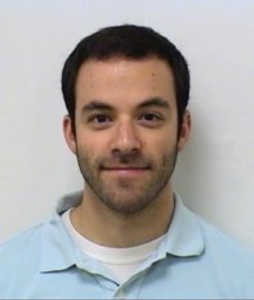MD-MCB Alumnus
About Me
I was born in Boston, Massachusetts and spent portions of my childhood living in Cape Cod, Baltimore, and Bethel – a rural town in Western Maine. My family still lives in Portland, Maine, so I have strong ties to Northern New England.
In 2010, I graduated from Northeastern University in Boston. Shortly thereafter, I joined the Christopher A. Walsh Laboratory at Boston Children’s Hospital where I studied the genetic basis of congenital brain malformations. During my two years in the Walsh Lab, I was exposed to the excitement of new discoveries and developed a healthy addiction to biomedical research. It was also during this time that I came to appreciate the important connection between endeavors in the laboratory and those in the clinic and decided that a career bridging research and medicine was the path for me.
In 2012, I began my long journey at Geisel. Between my first and second years of medical school, I had the opportunity to complete an HHMI Summer Medical Fellowship at the Jackson Laboratory where I studied a novel neurodegenerative disorder in mice. I joined the Huang Lab in September of 2014. Although I was surprised at first to find myself in an immunology lab, after completing my rotation I couldn’t picture myself anywhere else. My current work focuses on understanding the mechanisms of AKT activation and the role this kinase plays in the development of various human neoplasms such as breast cancer.
In my free time, you’re likely to find me enjoying the New Hampshire and Vermont woods while riding my bike, hiking, running, fishing, or skiing.
Publications
Abdullah L, Hills LB, Winter EB, Huang YH. Diverse Roles of Akt in T cells. Immunometabolism. 2021;3(1):e210007. doi: 10.20900/immunometab20210007. PMID: 33604081
Hills LB, Abdullah L, Lust HE, Degefu H, Huang YH. Foxo1 Serine 209 Is a Critical Regulatory Site of CD8 T Cell Differentiation and Survival. J Immunol. 2021 206(1):89-100. doi: 10.4049/jimmunol.2000216. PMID: 33229443
Wang X, Hills LB, Huang YH. Lipid and protein co-regulation of PI3K effectors Akt and Itk in lymphocytes. Frontiers in Immunology 2015 6:117.
Hills LB, Masri A, Konno K, Kakegawa W, Lam A-TN, Lim-Melia E, Chandy N, Hill RS, Partlow JN, Al-Saffar M, Nasir R, Stoler JM, Barkovich AJ, Watanabe M, Yuzaki M, Mochida GH. Deletions in GRID2 lead to a recessive syndrome of cerebellar ataxia and tonic upgaze in humans. Neurology – 2013 (Vol. 81, Issue 16, pp. 1378-1386)
Evrony GD, Cai X, Lee E, Hills LB, Elhosary PC, Lehmann HS, Parker JJ, Atabay KD, Gilmore EC, Poduri A, Park PJ, Walsh CA. Single-Neuron Sequencing Analysis of L1 Retrotransposition and Somatic Mutation in the Human Brain. Cell – 2012 (Vol. 151, Issue 3, pp. 483-496)
Poduri A, Evrony GD, Cai X, Elhosary PC, Beroukhim R, Lehtinen MK, Hills LB, Heinzen EL, Hill A, Hill RS, Barry BJ, Bourgeois BFD, Riviello JJ, Barkovich AJ, Black PM, Ligon KL, Walsh CA. Somatic Activation of AKT3 Causes Hemispheric Developmental Brain Malformations. Neuron – 2012 (Vol. 74, Issue 1, pp. 41-48)
Save
